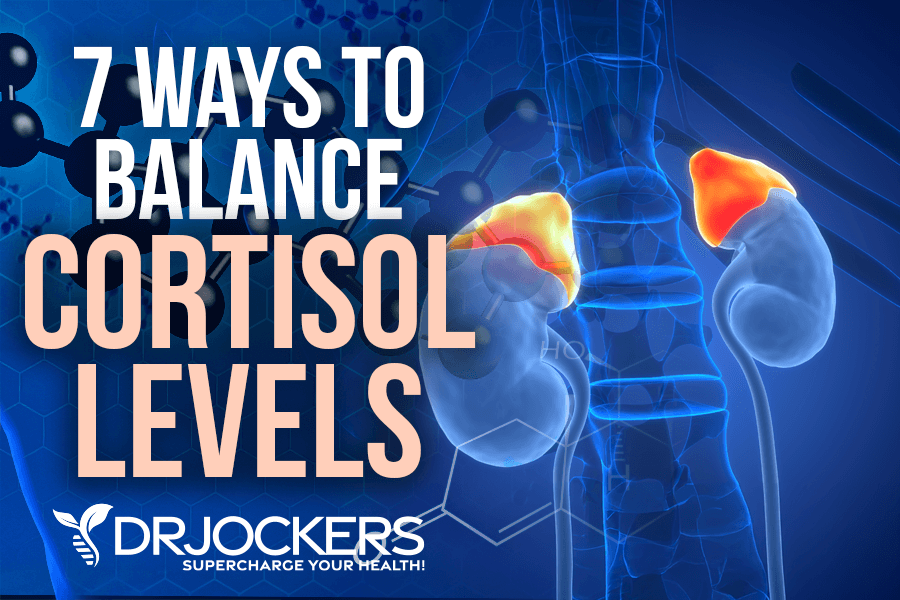 7 Ways to Balance Cortisol Levels
7 Ways to Balance Cortisol Levels
If you are like most people in our society, you are under some form of stress every day. Everything from busy lifestyles, poor sleep, and environmental toxins, to poor emotional health puts an excess demand on our bodies. Typically, when this happens, your body will be producing elevated levels of cortisol from the adrenal glands. In this article, you will discover 7 ways to balance cortisol levels naturally.
Cortisol is your body’s way of boosting your energy so that you can overcome your stressors. When it becomes dysregulated, however, chronic cortisol elevation can have health consequences. With the increased demands of today, it is important to balance cortisol levels for optimal health.

What Is Cortisol?
Cortisol is notoriously referred to as the stress hormone. Over the years, various media sources have deemed cortisol the bad guy, claiming that it is bad for the body. What most people don’t realize, however, is that cortisol is an essential part of how your body works. The key is to balance cortisol levels for optimal health.
Our ancestors often lived in hostile environments with immediate threats to their lives. In these situations, we needed a way to quickly maximize our energy and heighten our senses to improve the chances that we could evade an immediate threat.
The cortisol response is essentially our way of increasing our ability to survive in a dangerous situation. When your brain perceives stress or an immediate threat to your well-being, it releases cortisol. When cortisol is released, it acts as a mild pain reliever and signals the release of stored sugars into the blood for immediate energy.
When there is a physical threat in our immediate environment, this is a very useful action from the body. However, in today’s culture, many people get small cortisol releases throughout the day from stressors that do not get resolved or are simply derived from stressful thinking. A repeating cycle of this can cause many problems in the body.

High Cortisol
Most people who are under chronic stress will have elevated cortisol levels. This is because the body is trying to ramp up its ability to deal with an excess demand. While high cortisol levels are not a problem in themselves, chronically elevated cortisol can be.
One of the big problems with chronic cortisol elevation is that we often see blood sugar imbalances. These are some of the most insidious robbers of our health. Blood sugar imbalance increases inflammation, which puts more stress on the adrenals and begins a vicious cycle as they continue to make each other worse.
If continued long enough, this chronic elevation of cortisol can also throw off sex hormone balance and contribute to weight gain, brain fog, low energy, and an overall lowered vitality.
Chronically elevated cortisol (sometimes diagnosed as Cushing’s Disease/Syndrome) is often the beginning of adrenal dysfunction if nothing is done to restore balance (1).

Low Cortisol
Adrenal fatigue, or more accurately, HPA axis dysfunction, is often characterized by a chronically low cortisol level. These people tend to feel tired and unable to handle the daily stressors of life. Other symptoms could include weight gain, hormone imbalance, anxiety, insomnia, depression, and frequent crashes in energy.
This often occurs after a prolonged period of high cortisol, and why it is so important to learn how to balance your own.
Low cortisol is often a sign that the body has been under elevated stress for an extended amount of time and can no longer handle the demands of its environment. This is when someone begins to progress through the various stages of adrenal dysfunction as cortisol output continues to decline.
This state can also be induced by Addison’s disease. Addison’s is an autoimmune condition in which the immune system begins to attack the adrenal glands, hindering their function (2).
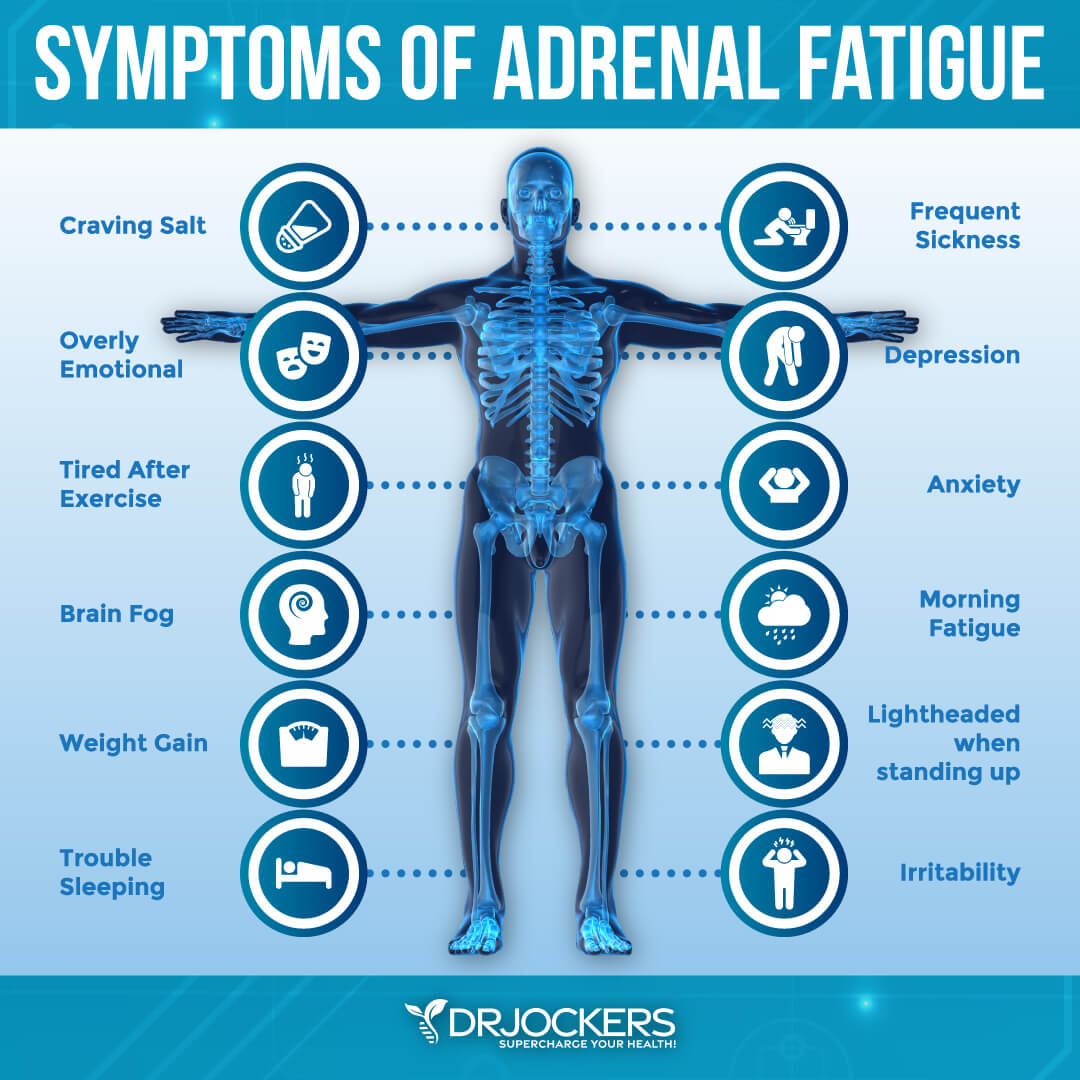
Strategies To Balance Cortisol
The demands of today are not changing, and our health is a reflection of that. Now, more than ever, it is critical to employ strategies to balance cortisol. This will ensure the body remains in an adaptive state rather than a maladaptive one. This will also ensure that you have the energy and mental clarity you need to have a deep experience of life.
When it comes to trying to balance cortisol and optimizing hormone balance, these are the strategies you must follow.
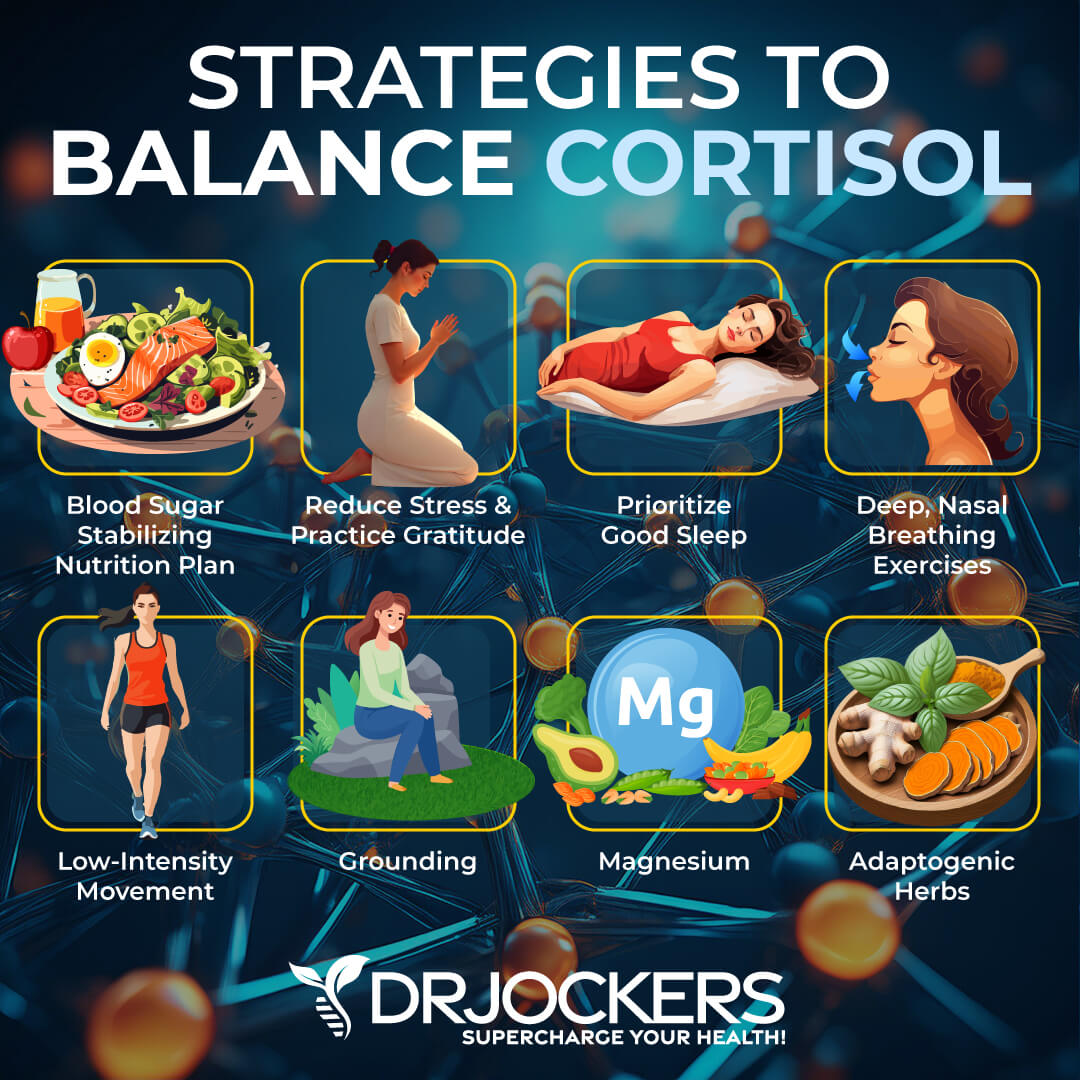
Anti-Inflammatory Healing Diet
One of the most foundational principles of balance in almost any body system is having a healthy blood sugar balance. This is because blood sugar imbalances can contribute to inflammation, which throws off more processes in the body than one can count.
In order to balance cortisol levels, we need to cut out sugar, processed carbohydrates, and grains from the diet. These should be replaced with healthy fats from coconut, avocado, olives, grass-fed meats, wild-caught fish, and dairy products from pasture-raised animals. Small amounts of nuts and seeds, such as macadamia, sprouted almonds, and sprouted pumpkin seeds, can also be a great addition.
Finally, you want to complete your meals with moderate amounts of protein from pasture-raised animals or wild-caught fish, along with lots of fibrous veggies. Because this aspect of health is so important, it is the basis for all of my health protocols. You can read more about the benefits of this style of eating here.
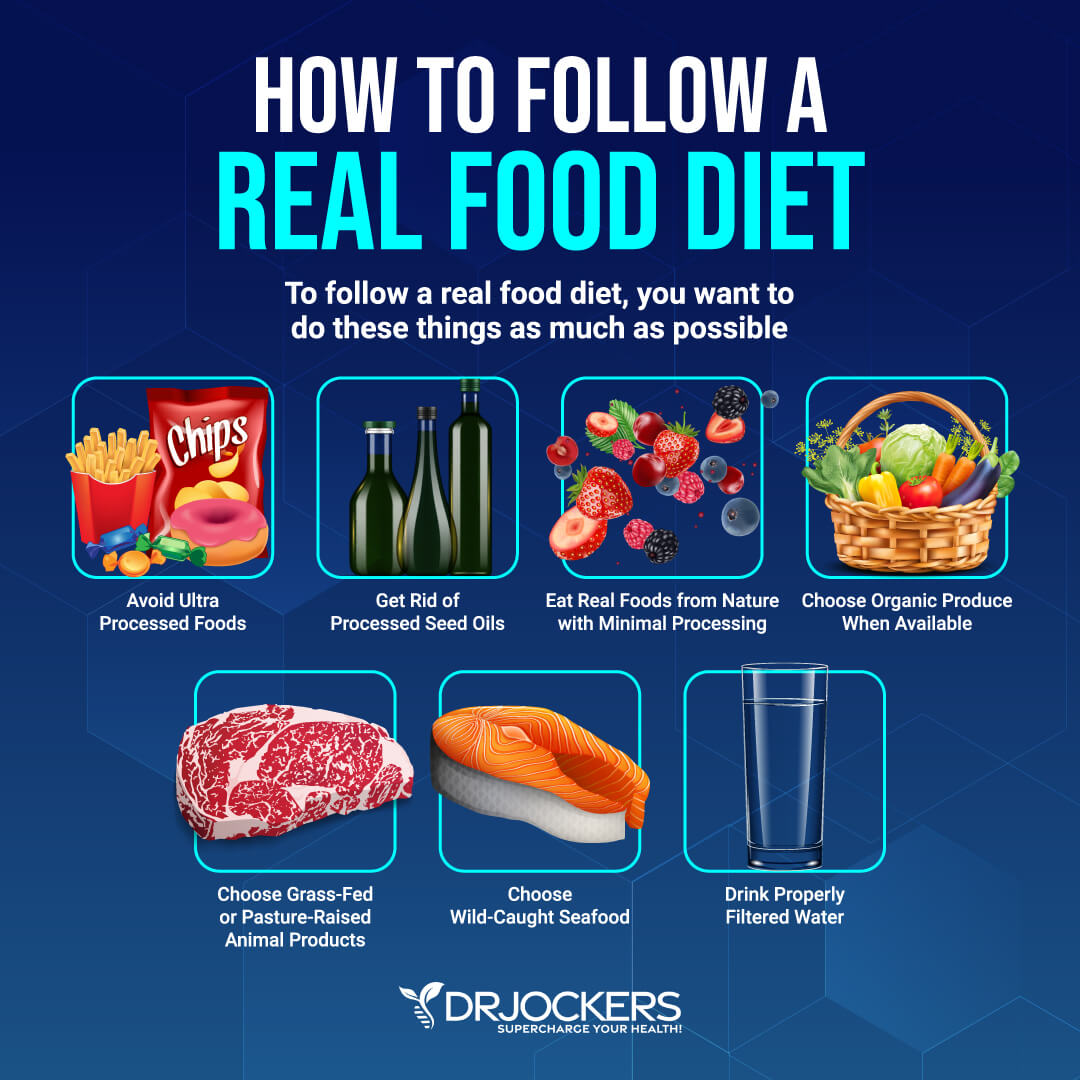
Reduce Stress and Promote Peace
When we are constantly grinding, sometimes we forget how to relax. For example, many people who come to me with adrenal dysfunction often feel chronically tired, yet wired at the same time. If you don’t take time out to train your ability to relax, stress out can become your default state.
This is why it is important to balance your stress with relaxation. This can be done in many ways. From a daily perspective, it can be super helpful to spend time in prayer, meditation, deep breathing, stretching, taking a healing bath, or gratitude journaling upon waking or before bed.
Additionally, you want to reflect on your life and see if there are areas of stress that you can cut back on. This could mean removing stressful people, surrounding yourself with uplifting friends, finding a way to reduce that long commute, improving communication skills (great for reducing stress in relationships), and anything else you can think of. Find those areas of your life that are robbing your energy unnecessarily and do what you can to improve them.
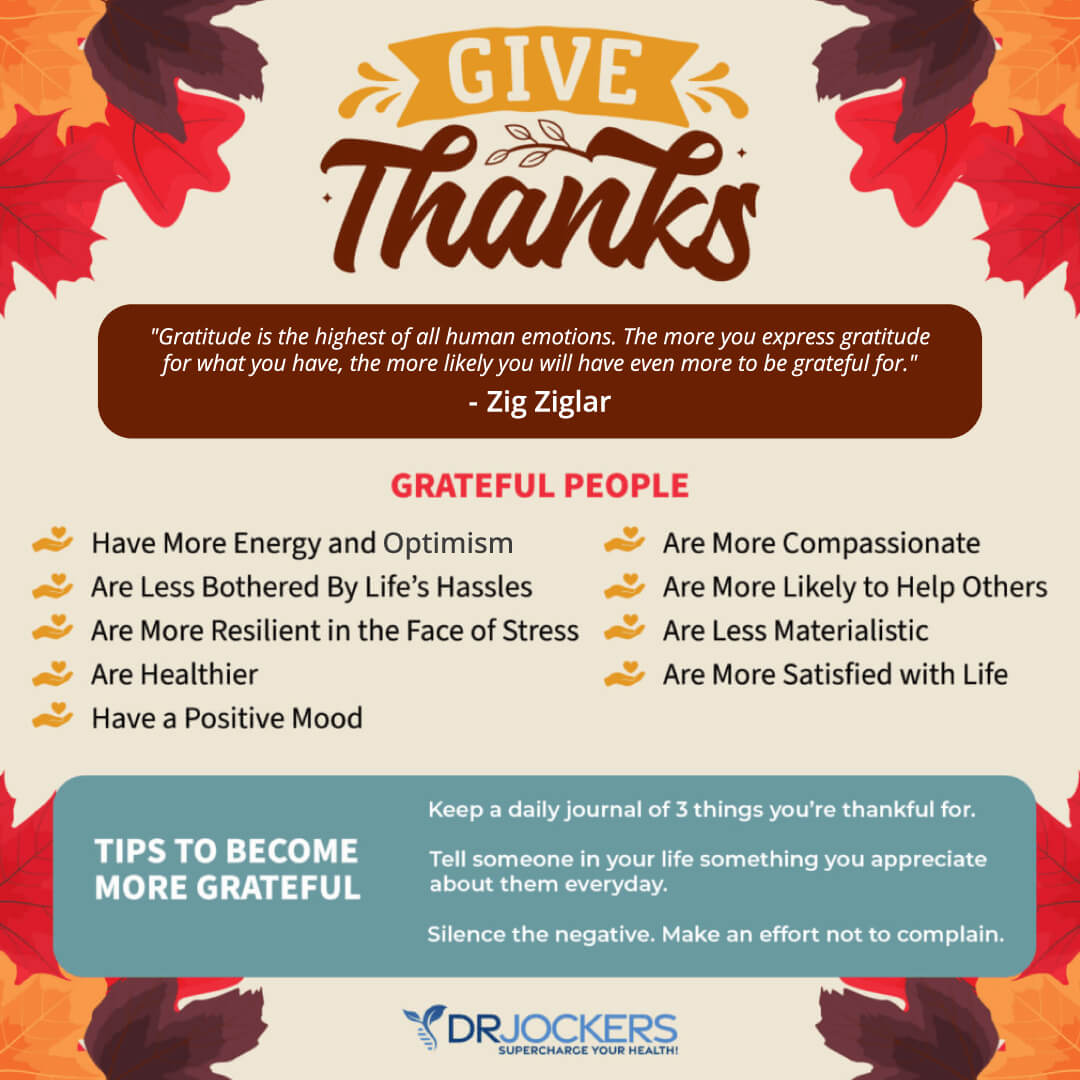
Sleep Well
As I said, it is critical to balance your stress with relaxation so that your body can rejuvenate and adapt to a stronger tomorrow. This is especially important when it comes to sleep. Getting high-quality, deep sleep regularly can be just as much of a game changer as balancing blood sugar.
This is because deep sleep rejuvenates the brain and restores balance to the whole body in so many ways. Unfortunately, our modern-day environment is really messing with our ability to sleep.
On top of being under chronic stress, we are surrounded by blue light from electronic devices, EMF from phones and WiFi, and we don’t spend time in the sun as much anymore. These are all things that control our brain’s internal clock that tells us when to sleep.

Deep Breathing
Deep breath work is a great way to quickly pull your body out of a stressed state. If done correctly, it can activate the parasympathetic branch of your nervous system, which is responsible for inducing a state of relaxation.
One common and effective way of doing this is to perform what is called the box breathing technique. This is a simple technique where you breathe in, hold, breathe out, hold, and repeat in increments of 5 seconds each. So, breathe in for 5 seconds, hold for 5 seconds, etc.
Many people will notice that this technique is great for grounding during a time of stress and quickly reduces any anxiety they are feeling. You can also employ an active form of this technique when you are walking somewhere.
Following the same pattern, breathe in, hold, breathe out, and hold in increments of every 5 steps. This can be a great mindfulness strategy when you don’t have time to sit and meditate.
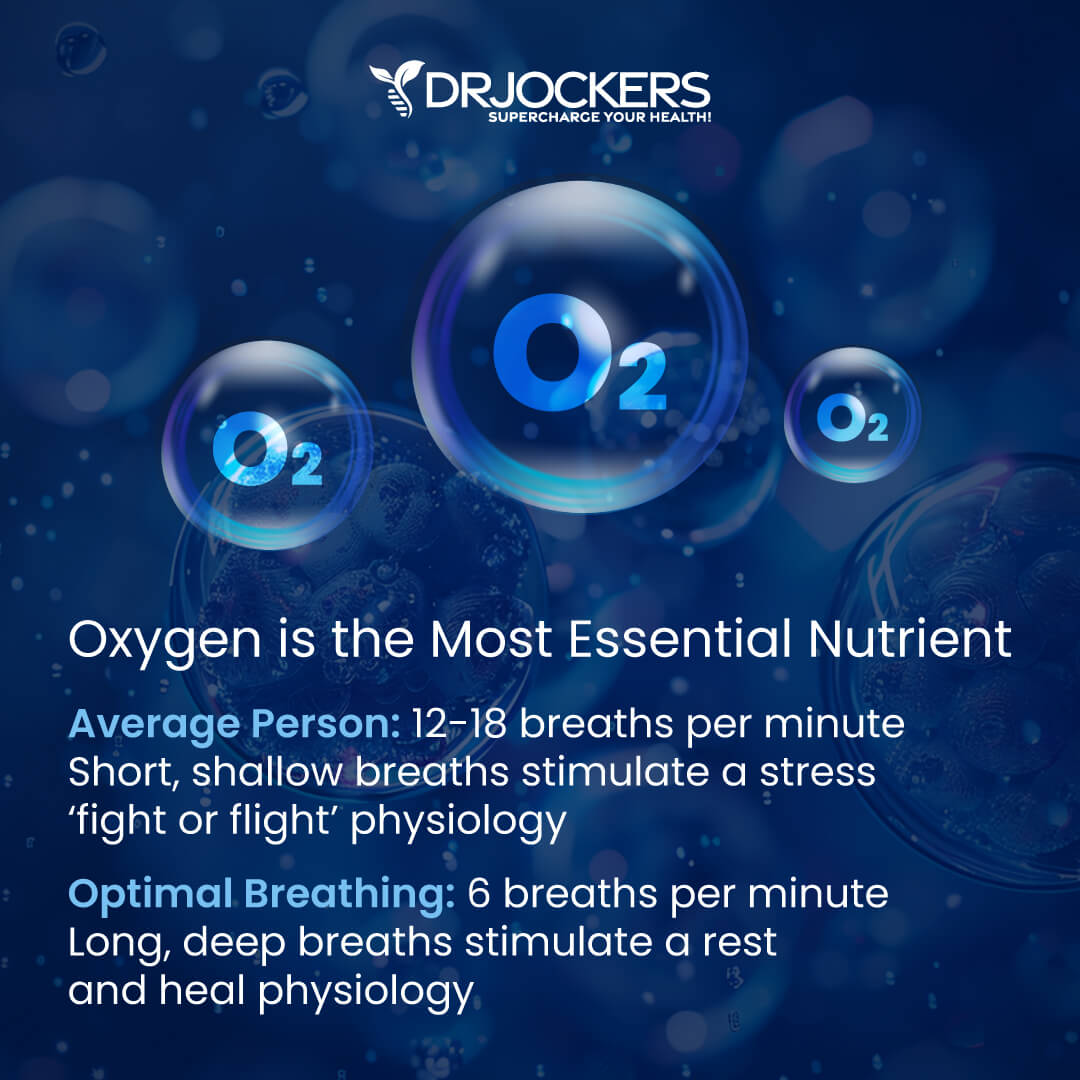
Grounding
Modern humans have largely separated themselves from the earth in many ways. We spend much of our time indoors, and as a result, we no longer receive regular sunlight or contact with the bare ground. These are both actually very important for our health.
Our bodies are optimized to work with the light and magnetic forces that are emitted by the Earth and the sun. When we do not receive these things, we experience consequences.
Studies have actually shown that making barefoot contact with the earth can lower inflammation and improve stress levels in humans (3). To take these benefits a step further, I would recommend doing so in the sunlight with skin exposed.
The best times of day to perform these activities are sunrise, midday, and sunset; this way, your brain will reset with the circadian cues of the environment that tell us when to sleep.
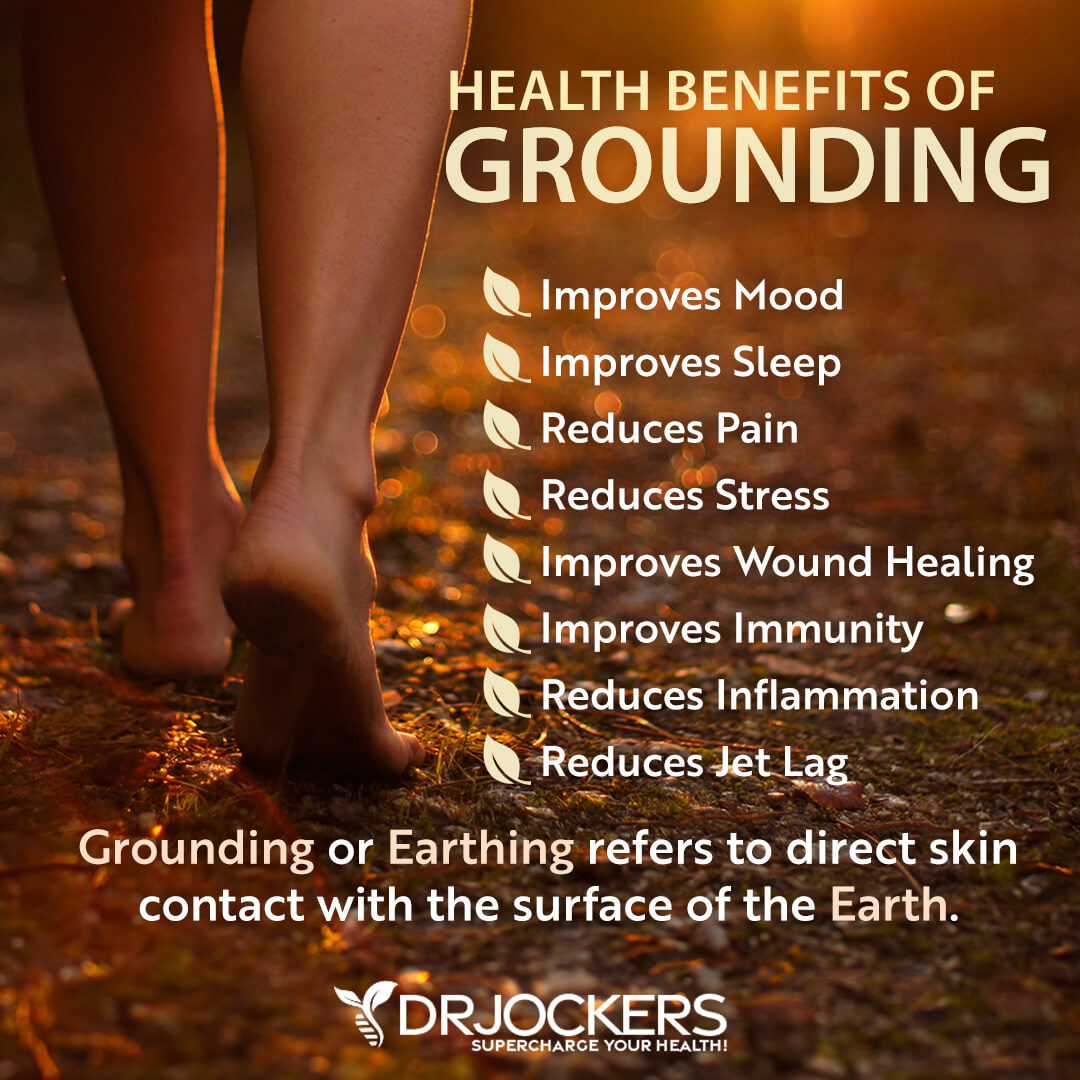
Magnesium
Stress increases our need for magnesium while also rapidly depleting it from the body. Because magnesium is used for so many processes in the body, including energy production, a deficiency could make your stress more detrimental to your health. This can lead to a downward spiral of health consequences if it is not addressed.
While some people may be able to get away with consuming magnesium-rich foods, I often recommend supplementation as a way of topping off your body’s stores and improving your resilience to stress.
Specifically, Brain Calm magnesium gets consistent results in improving mood, promoting relaxation, improving sleep, improving blood sugar, and improving the ability to adapt to stress. These effects collectively can help balance cortisol levels tremendously.
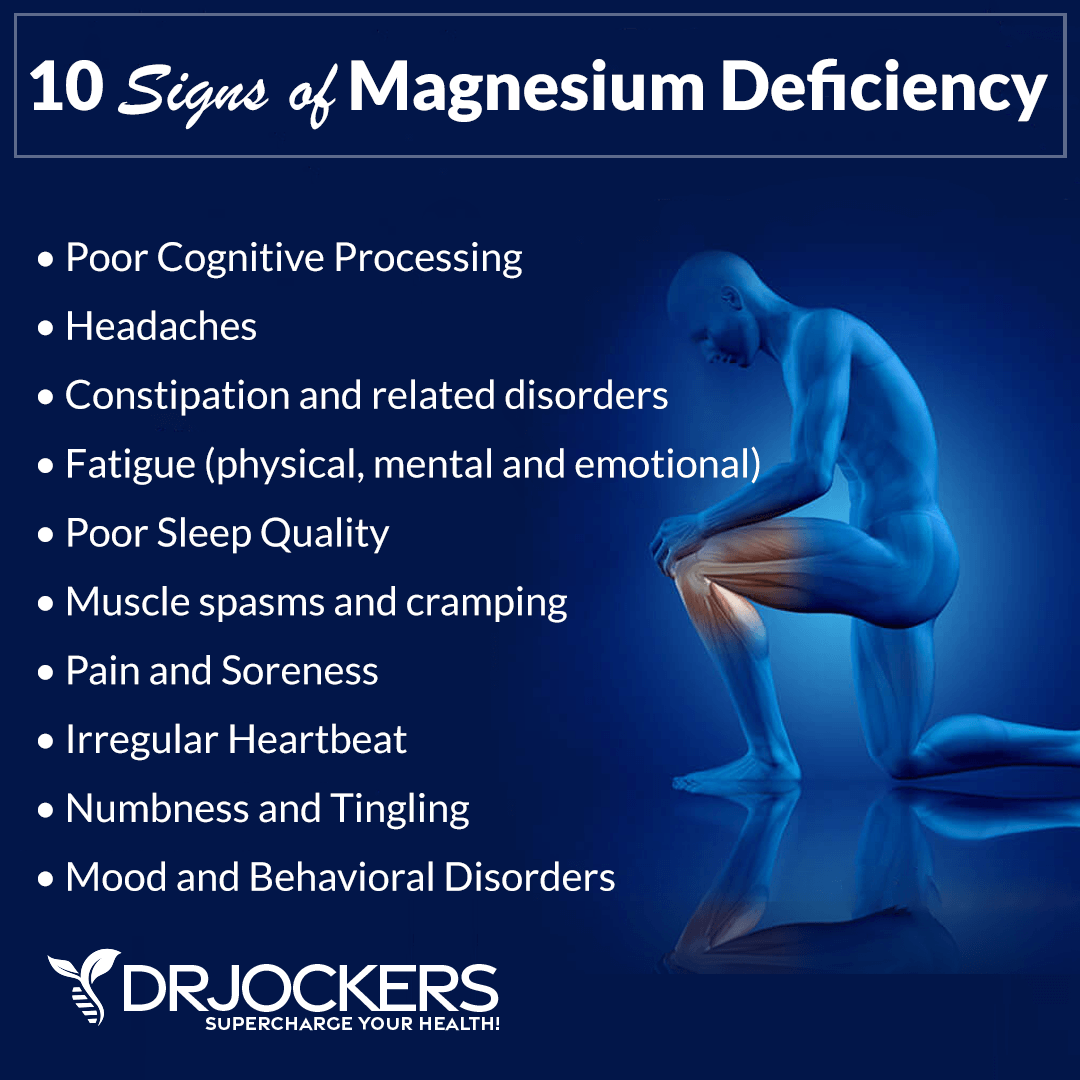
Adaptogenic Herbs
For additional support that can be easily implemented into a busy lifestyle, adaptogenic herbs can be powerful. These are herbs that strengthen your ability to handle stress by improving stress hormone signaling (4).
Improving stress hormone signaling is important to help with blood sugar and sex hormone imbalances, which contribute to many health problems on their own.
One of the best herbs I have found to balance cortisol is ashwagandha, which provides beneficial effects for both cortisol and DHEA (a sex hormone precursor). It has also been shown to lower subjective reports of stress and improve cognitive function.
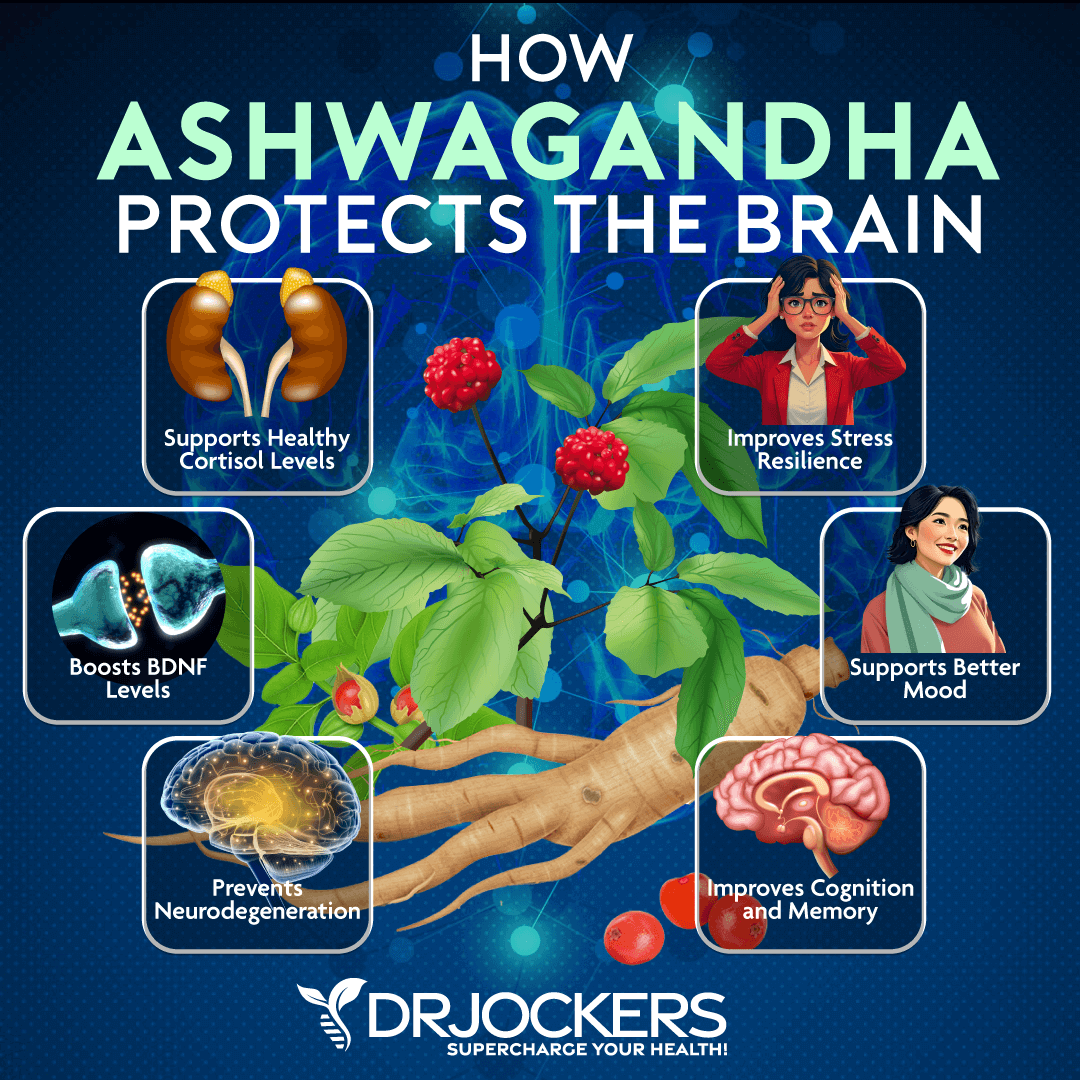
Introducing Cortisol Defense
Other herbs that provide similar benefits are Magnolia of cinalis and Phellodendron amurense. Together, these herbs help to improve cortisol-DHEA balance and improve perception of stress.
I have been working on a new supplement that incorporates these herbs, along with other powerful cortisol stabilizing compounds, to help combat the negative effects of chronic stress. Cortisol Defense is the result.
It is a powerful formula containing clinically tested extracts of these herbs that outperform all others. In addition to the lifestyle strategies outlined above, Cortisol Defense can help you conquer your stressful lifestyle once and for all.
Inflammation Crushing Ebundle
The Inflammation Crushing Ebundle is designed to help you improve your brain, liver, immune system and discover the healing strategies, foods and recipes to burn fat, reduce inflammation and Thrive in Life!
As a doctor of natural medicine, I have spent the past 20 years studying the best healing strategies and worked with hundreds of coaching clients, helping them overcome chronic health conditions and optimize their overall health.
In our Inflammation Crushing Ebundle, I have put together my very best strategies to reduce inflammation and optimize your healing potential. Take a look at what you will get inside these valuable guides below!
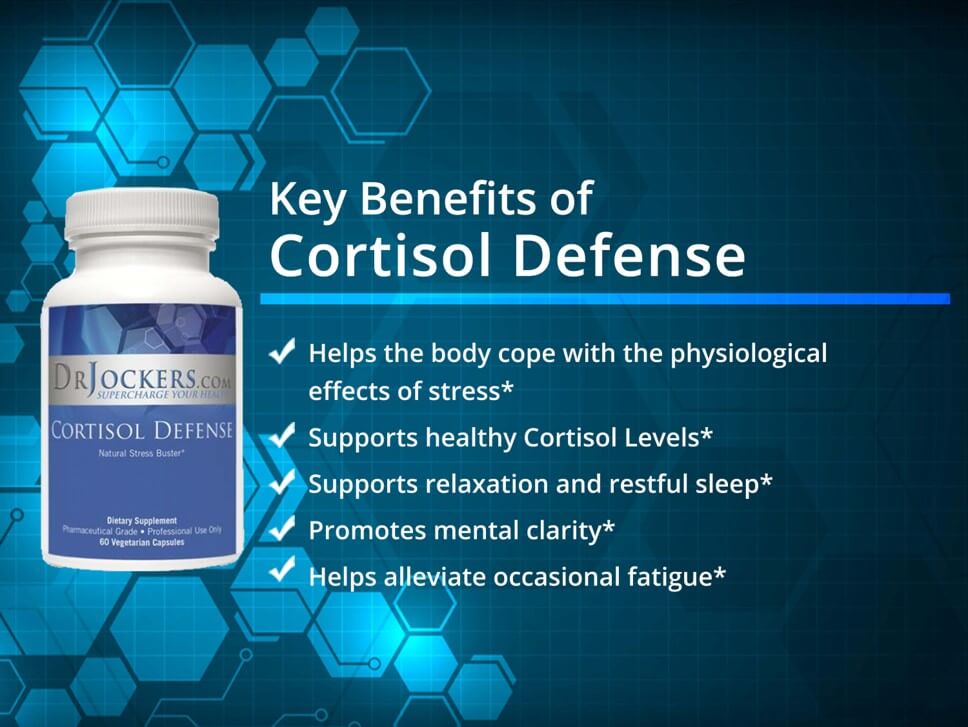




I have struggled with bad fatigue for many years. Several naturopaths, as well as my functional medicine dr have diagnosed me with adrenal fatigue. I have tried many different herbs, vitamins, supplements and diets. Nothing seems to really help me overcome it. Now my doctor would like me to try a low dose of hydrocortisone. Any thoughts? Is this a bad idea?
Hey Sara, it may be more useful to look at it as a communication issue between the hypothalamus, pituitary, and adrenals. Not so much that the adrenals themselves are fatigued. I would need to see your hormone levels before making any kind of recommendations! Email nutrition@drjockers.com for more information.
Hi I have Addison’s disease and was wondering if you’re cortisol defence would help and allow me to lower the medication I’m taking?
Hey Jeanette, while I cannot comment on using the Cortisol Defense for treating a disease process or give you advice on medications, I will say that the Cortisol Defense will support your HPA axis which can help you feel much better. Blessings!
I was diagnosed with Cushing Disease last year I had my Transsphenoidal surgery on Sept 20, 2018 I had great results from surgery but I had a 24 hour urine test on Jan 4th results were high (79.4). I have an scheduled MRI on the 18th.
After doing your Fasting Transformation Summit I stared following Keto diet and fasting. [Do you foresee a change now that I’m following your teachings to the T.]
I started Jan 14th I have lost 10 lbs my fast glucose went down within my first week. I’m not diabetic or have any other health issues and by the way my primary physician is trilled with my results.
Fantastic to hear that Isabel! Blessings!
Hi Isabel I just got my saliva cortisol results and they were high all during the day especially evening, nights, and midday. I would like to know your symptoms of cussing disease and how were you tested?
Can I take this supplements while breastfeeding?
We have no research to say that it is safe during breastfeeding, but Dr Jockers wife has taken it while breastfeeding safely.
Hi Dr. Jockers my cortisol levels came back today and they were morning 19.1 (7.0-22.0), Noon 6.8 (2.0-7.0), Afternoon 5.9 (1.0-5.0), Nightime 3.6 (0.4-3.0) and I am feeling weak, fatigue, and breathless all the time.
Sorry to hear that! I would recommend taking the cortisol defense. However, you are most likely dealing with some sort of chronic infection or environmental exposure that is causing this chronic stress response. You may have mold in your home or heavy metal toxicity. Be sure to work with a functional health practitioner to figure out and address the root cause: https://drjockers.com/functional-nutrition-tips-to-find-a-great-health-coach/
Is ashgawandha safe for stage 3 ckd?
Yes it is but always advisable to consult with your doctor about this. Blessings!
Does your product cortisol defence and and the herb ashwagandha both do the same as predisolone for bronchiteaus?
Hey Jane, No, cortisol defense and ashwagandha are not medications and are not meant to do what a medication does. Instead, cortisol defense and ashwagandha work to help balance cortisol levels so you get the appropriate amount your body needs.
Do these herbs raise or lower DHEA? What is recommended for low DHEA and are there norms for children? Could it be that the fatigue of people above is due to mitochondrial problems and high lactate? Thanks!
These are all DHEA modulators and will help to balance it depending upon where it needs to go. Yes, mitochondrial dysfunction can absolutely be a player in fatigue as well.
Hi can any of ur leaky brain supplements help people who have brain health problems eg:
Biopolar Disorder
Shizophrenia
Love to know as the chemical crap u get from Drs have that many side effects and theres not one on the market that the pharmaceutical companys can recomnend that actually work! Believe me I know have tried many ova 29 years still no better off just less money in pocket and filling up the pharmaceuticals theres…!
Hey Delma, yes these products can really help reduce brain inflammation and support the bodies healing processes. Blessings!
Enjoyed the article. Just curious if you have heard of individuals unable to take ashwaganda . I am one and get headaches. Yet, I hear it is a phenomenal supplement and very helpful. Thanks!
Yes ashwagandha is in the nightshade family and some individuals can have a poor response to it.
Many years ago I used to get DHEA as a supplement, but now it requires a prescription.
Hello Ian, here is a good DHEA supplement: https://amzn.to/3kbMfi7
Hi, I was diagnosed with “adrenal fatigue” since 2006, hypothyroid 2018 from cumulative stress but now retired, age 79. Minimal everyday stress but Dutch test continues to show too high cortisol — 77.2 waking (range10-50) & 23.8 night (range 0-14).
Rotating melatonin, phosphatydylserine, valerian, skullcap usually work for sleep unless I am obsessed with troubling thoughts. Do you think Cortisol Defense would help me ? Ashwaghanda in the past has made me sleepy during the day if I did not have enough sleep the night before. Often think supplements are covering the root cause and maybe trauma therapy is needed (?)
Appreciate your opinion and all of your articles !
Sorry to hear about this. Yes I would try out the Cortisol Defense and see how you feel!
Progesterone helps make cortisol which maybe low in people.